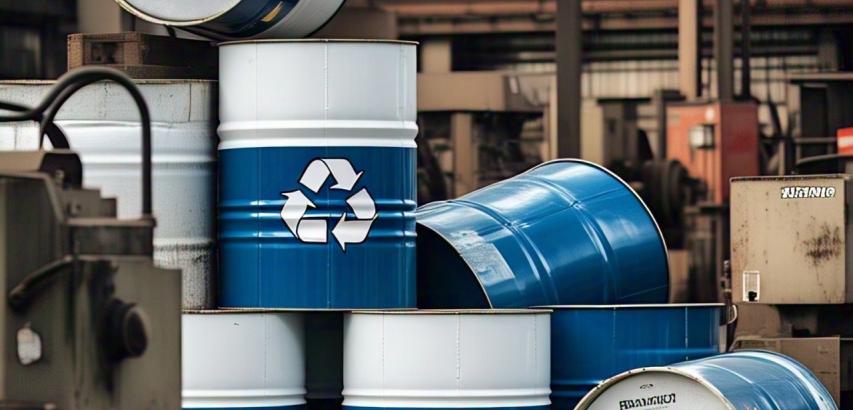Recycling drums are essential in industries that generate large quantities of liquid or solid waste. These drums, typically made from materials such as steel, plastic, or fiber, are designed to store and transport various substances, including chemicals, oils, and food products. Recycling them not only helps reduce environmental impact but also promotes sustainable practices.
Why Recycling Drums is Important
Environmental Protection:
Prevents harmful chemicals and residues from contaminating soil and water.
Reduces the need for new raw materials, conserving natural resources.
Cost Efficiency:
Saves money by reusing drums instead of purchasing new ones.
Reduces disposal costs and landfill fees.
Compliance with Regulations:
Many countries have strict regulations governing drum disposal and recycling.
Proper recycling ensures adherence to environmental laws and standards.
Types of Drums Suitable for Recycling
Steel Drums:
Commonly used for storing oils, chemicals, and hazardous substances.
Highly durable and can be reconditioned for reuse.
Plastic Drums:
Used for food products, liquids, and non-hazardous materials.
Can be melted down and reformed into new plastic products.
Fiber Drums:
Made from thick cardboard, used for dry or solid materials.
Can be shredded and recycled as paper products.
Recycling Process of Drums
Collection and Sorting:
Drums are collected from industrial sites, warehouses, or recycling centers.
Sorted based on material type (steel, plastic, fiber).
Cleaning and Decontamination:
Residual substances are removed and properly disposed of.
High-pressure washing and chemical treatments are applied to ensure safety.
Reconditioning:
Damaged drums are repaired and refurbished.
Steel drums may undergo painting and lining for reuse.
Material Recycling:
Steel drums are melted down and converted into new metal products.
Plastic drums are shredded and processed into pellets for manufacturing new items.
Fiber drums are pulped and transformed into recycled paper products.
Applications of Recycled Drums
Reused as Storage Containers: Cleaned and reconditioned drums can be repurposed for storage.
Manufacturing New Products: Recycled materials are used to produce new plastic items, metal structures, or paper goods.
Upcycling Projects: Drums can be creatively transformed into furniture, planters, or decorative items.
Benefits of Drum Recycling
Reduces Environmental Impact: Minimizes waste and lowers pollution.
Promotes a Circular Economy: Keeps valuable materials in use rather than in landfills.
Supports Corporate Responsibility: Companies demonstrate commitment to sustainability.
Recycling drums is an eco-friendly and economically viable practice that benefits both businesses and the environment. By following proper recycling protocols and adopting sustainable practices, industries can significantly reduce their environmental footprint while promoting responsible waste management.
 |  |  |
